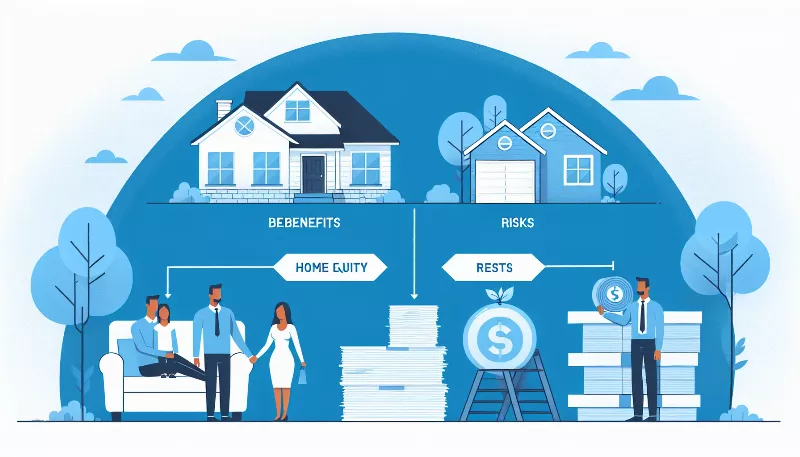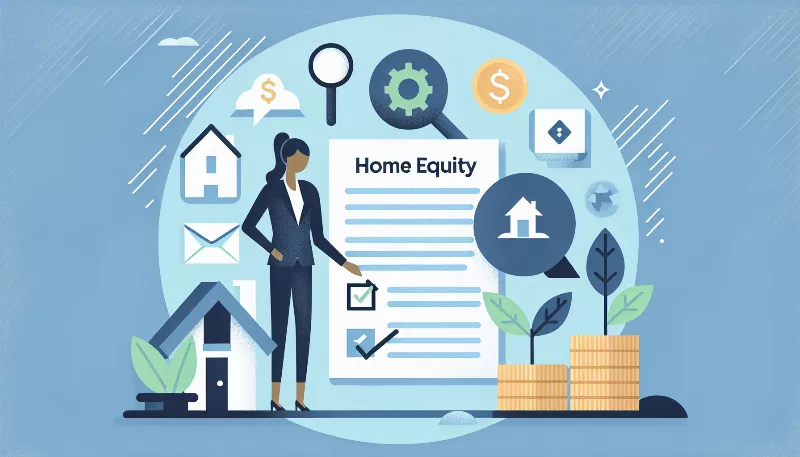What are the tax implications of borrowing against home equity?
Unlock the secrets of home equity loans' tax impact. Learn how borrowing against your home can affect your taxes with our expert insights.

Introduction to Home Equity Financing
Are you considering tapping into your home's equity? It's a popular way to access funds for renovations, consolidating debt, or even funding educational expenses. But before you dive in, it's crucial to understand the tax implications that come with borrowing against your home equity. Let's embark on an exciting journey to unravel the fiscal nuances of leveraging your home's value!
The Basics of Home Equity Loans and HELOCs
First off, let's differentiate between the two primary methods of borrowing against home equity: Home Equity Loans and Home Equity Lines of Credit (HELOCs). A Home Equity Loan provides you with a lump sum, while a HELOC offers a credit line to draw from as needed. Both options can be financially savvy, but they come with different tax considerations.
Mortgage Interest Deduction: The Silver Lining
One of the perks of borrowing against your home equity is the potential to deduct the interest paid on the loan. The IRS allows you to deduct interest on up to $750,000 of qualified residence loans, which include both your primary mortgage and your home equity loan or HELOC. However, there's a catch! The deduction only applies if you use the funds to buy, build, or substantially improve your home. So, if you're planning to renovate your kitchen or add a new roof, you're likely in the clear for this tax advantage.
Understanding the Limits: Not All Uses Qualify
Now, if you're thinking of using your home equity loan for other purposes, like paying off credit card debt or buying a car, hold that thought. The interest on the loan won't be deductible in these cases. It's essential to keep this in mind when planning how to use your borrowed funds, as it could significantly impact your tax situation.
AMT Considerations: A Curveball for Some Taxpayers
For those who are subject to the Alternative Minimum Tax (AMT), the rules can get a bit more complex. The AMT is a parallel tax system designed to ensure that high-income earners pay a minimum amount of tax. If you fall into this category, you might find that your ability to deduct home equity loan interest is limited. Consulting with a tax professional can help you navigate this tricky terrain.
Capital Gains Implications When Selling Your Home
What happens when it's time to sell your home? If you've taken out a home equity loan, it doesn't directly affect your capital gains tax exemption ($250,000 for singles and $500,000 for married couples filing jointly). However, the remaining balance of your home equity loan will need to be paid off at the sale, which could reduce the cash you pocket after closing.
Final Thoughts: Making Informed Decisions
Borrowing against your home equity can be a powerful financial tool, but it's not without its complexities. By understanding the tax implications, you can make informed decisions that align with your financial goals. Whether you're improving your home or consolidating debt, consider the tax consequences to maximize the benefits of your home equity financing.
Remember, tax laws can change, and individual circumstances vary, so it's always wise to consult with a tax advisor to ensure you're making the best choices for your unique situation. Here's to unlocking your home's potential in the most tax-efficient way possible!









